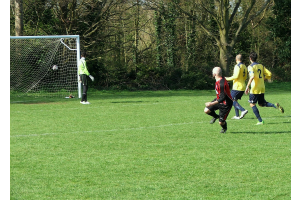Posts Tagged ‘politics’
Political women in the 1970s
In early 1972 I had a note from the women’s editor of my New Zealand newspaper requesting pieces on how the women’s liberation movement had changed the role of women in politics. “Surely,” she said, “women over there do more than make tea for the candidates.” My response was a two-part series. First, the attitudes and roles of party workers in my county, now more widely known at Silicon Valley. In my next post, I’ll share a profile of a woman political candidate.
Women in Politics Part I:
Party workers reflect range of attitudes
Santa Clara County, CA, 1972
The grey-haired woman in the Republican campaign trailer sniffed contemptuously. “Women’s lib! I don’t hold with all that stuff.” She is the wife of a retired army officer, and a veteran of political campaigns. Meanwhile, the Republican incumbent for her Assembly district is being challenged by a feminist woman Democrat, and in Southern California the Women’s Division of the Democratic Party is seeking to abolish itself, on the grounds that a separate women’s organization is sexist in conception.
These are the extremes in the spectrum of views on women’s place in the world that the political party workers of Santa Clara County, CA reflect in their organization, their activities, and their attitudes.
Organization at the state level is set for both parties by the state code. Each legislator or party candidate has up to five nominees to the State Central Committee of his party, of whom at least two must be women. From this 1,000-strong body, a man and a woman for each Congressional District are chosen to form the decision-making executive committee.
“The women have a great deal of influence,” says Loretta Riddle, field representative and campaign coordinator for State Senator A. Alquist, who has served on the executive committee for ten years. “It has been a very fair thing. If you have the ability, and work hard, you can make your voice heard.”
The presence of a few women is customary, though not mandatory, on the elected County Central Committees. But at this level the loose structure imposed by the state gives way to local idiosyncrasies. The Democratic Party, though overwhelmingly the majority part of the county, admits to being fragmented and disorganized. The Republicans, on the other hand, pride themselves on their efficiently centralized hierarchy. Robert Walker, executive director of the Republican county headquarters, has the county committee divided into specialized sub-committees, and keeps close liaison with his party’s many volunteer clubs.
In contrast to the 600 members that the Women’s Division of the Democratic Party can muster, the thirteen chapters of Republican Women’s Club in the county have a total of 3,000 members. Ten of the clubs run their own local campaign headquarters, registering voters and handing out literature for all the Republican candidates. They are also the labor force of the campaign. “Those women are fantastic,” says Mr. Walker. “I can send them a 30,000-piece mailing and get it back the next day all ready to go.”
The Democratic women have a project too: they run the county headquarters for the party. Madge Overhouse, its director, feels that she has a strong voice in the running of the party organization. “But it is simply by going ahead and doing something like this. Within the Democratic Party you can come up with an idea and follow it through.”
“Individual effort” is an idea often expressed by Democratic women; “femininity” comes more often to the lips of Republicans. The northern chapter of the Democratic Women’s Division, though less militantly feminist than its counterpart in Southern California, puts most of its fund-raising effort into the campaigns of women candidates. Ladies’ club activities like luncheons or fashion shows, favorites of the Republican women, are not popular with Democrats. “We are more issue-oriented,” says Madge Overhouse.
The advantage of clubs, thinks Robert Walker, is that they attract people who would not ordinarily be involved with the party. He described the Republican Party as “the party of the middle class. They tend to be socially oriented, and this carries over to their approach to doing political work. They want to gain some prestige out of it.”
Joan Menagh was a founder of the Republican Women’s Club in her neighborhood. While enjoying the social aspects, she stresses that education is its primary purpose. “Volunteerism” has been a popular topic for speakers. Traditional social values prevail. Though she has worked up to a seat on the County Central Committee, and a full-time job in the office of U.S. Congressman Ch. Gubser, Mrs Menagh claims to have no political ambitions. “In my life my husband and family come before any of my other activities.”
Democrat Madge Overhouse is also critical of the more militant factions of her party. “We have to recognize that there are a good many women who are perfectly happy to be wives and mothers. The militants are cutting these women off, and I think it’s too bad.”
Nor for that matter will Loretta Riddle run for office, partly because she wants to stay close to her two teenagers, but mainly because her personality is satisfied with the considerable power she already wields behind the scenes. She does however admire women who have aspirations to high office, and is longing to see a woman in the California Senate. “I don’t think men realize how much they need women in politics. Women have a certain sensitivity and perspective that men do not.”
Both Republicans and Democrats see a trend toward more women in public office. “I think it goes back to this whole women’s lib thing,” says Republican Joan Menagh. “Women for many years didn’t feel that running for public office was a particularly feminine thing to do, and voters in the past didn’t feel that a woman could hold her own within the political arena as a candidate. Both ideas are passing.”
Democrat Loretta Riddle agrees. “People have not yet learned to accept women who are forceful. But that doesn’t mean they shouldn’t go ahead, because then we may go along and start learning little by little.”
The way is open for a woman to rise as high in politics as her ability, tenacity and sheer personal drive will allow. It is a difficult path though, and few are willing to take it. The vast majority of women in political campaigns will no doubt continue to stuff envelopes, sit at voter registration booths, check precinct lists, and make tea for the parched throats of campaign speakers.
Politics in an old English village
My journalist instincts kicked in when I discovered a seething political battle behind a traditional English fair, in Wraysbury, a village on the Thames west of London. In my old black filing cabinet I found a copy of the article I wrote in 1962 for my Christchurch, New Zealand newspaper. I’ve appended a transcript.

A 2014 soccer game on Wraysbury Green. Photo courtesy of Cookham Dean Football Club.
A postscript: the Wraysbury Village Association won their appeal in July 1962. A search on Google Maps shows there is still a substantial green, with playing fields and tennis courts.
LEGAL BATTLE OVER VILLAGE FAIR
In the shade of ancient oaks and chestnuts, where the sweet scent of hay rises from the scythed grass, the sounds of the fair blare out from merry-go-rounds and coconut shies. Across the green, starry with clumps of white daisies, tents and stalls are filled with people inspecting plants, basketwork, and local works of art, or watching a potter at his wheel, or quaffing ale in the refreshment tent.
Wrestlers, fencers and gymnasts display their skills, and a model train, ponies and donkeys give rides across the green to excited children. The soft fluff of dandelion seeds fills the air, and above the trees dozens of swirling balloons make patterns against the warm summer sky. Pretty girls in long skirts, frilly white blouses and straw bonnets are selling programmes.
This is an English country fair, but one with a difference. It is an act of defiance by a village threatened with destruction, a self-consciously archaic revival of an ancient right and custom against the encroachments of suburban London. Its background is a feud that has split the village in two.
Wraysbury, Bucks., was a flourishing village when the Domesday Book was written, and inside its parish boundaries, on an island in the Thames, Magna Carta was signed by King John. Now overhead the whine of airliners rising from London’s Heathrow airport vie for attention with the swooping and twittering swallows. All round the village the tentacles of London’s urban sprawl show themselves in rows of smart modern houses. Closer and closer to the village the heavy machinery of the gravel merchants turns this swampy land on the north banks of the Thames into untidy pools and mounds of gravel.
Now the old manor farm, a relic of feudal times, is to go under the hammer. Most of the farm will be broken up—“for building development and gravel extraction.”
Most of this change has been taken philosophically by the residents of Wraysbury, many of whom have themselves come to the village from the crowded heart of London. But three years ago a crisis developed. A building speculator who had bought part of what was once the village green asked the villagers to waive their rights to this patch of land.
“What rights?” the villagers asked. They discovered that when the great enclosures had taken place in the 18th and early 19th centuries, a private Act of Parliament had in 1803 safeguarded to the use of the villagers certain footpaths down to and along the banks of the Colne Brook, which runs through the village, and also the right to hold, on the Friday afternoon after Whit-Sunday, the ancient and traditional fair on the village green.
This green is now in three sections, one of which was bought by public subscription for the village. Another section was bought by the local tennis club, and the third by the building speculator.
The speculator’s plot, like his request, is insignificant in itself, but the villagers believe that a major principle is at stake, particularly as a gravel contractor at the same time asked for a waiving of rights on one of the old footpaths, in order to extend his gravel extracting operations.
The villagers’ main concern is their remaining village green. If they were to give way in the two present cases, they feel that the Act which safeguards their rights will be undermined, and they will have no means of defending what is left.
When the matter was first broached, friends of the builder called a public meeting of the residents, who turned down the request by about 300 votes to 10. The builder decided, however, to continue his scheme. His opponents formed a residents’ association to protect their rights, accused the parish council of complicity, stupidity, or both, and applied to the court for an injunction to restrain the builder.
On the other side were ranged the parish council, half of whom were replaced by the association’s nominees at the next election, and those builders who were interested in property development, and who considered that the opposition were obstructing legitimate progress.
The association won their case, but an appeal is pending. Meanwhile, they determined to revive the traditional fair, which had not been held for 50 years. The fair itself, like most English country fairs, is a relic of pagan times, when it was a feast to honour gods and heroes. With the coming of Christianity the custom was adapted to a wake, or all-night vigil, which the parishioners spent in the church. It was followed the next day by eating and drinking and rural games.
The wakes, which had by that time become very riotous affairs, were stopped by Henry VIII. Charles I revived the old custom, but took the precaution of ordering that his Justices of the Peace should be responsible for preventing any disorders. By this time the religious aspect of the feast had become of secondary importance, and hawkers and peddlers of merchandise of all descriptions began to put in an appearance.
But the right to hold a fair was still held so sacred that, even through the great enclosures of the agrarian revolution, it was preserved to the village on the remnants of common land. It is this right which the villagers of Wraysbury are defending today. They do not see their fair as a sacred feast, but rather as a symbol of their right to keep a beautiful patch of ground for their, and their children’s recreation.
The explain it in their programme, which describes the purpose of the fair:
“In these days of giant squid corporations and almost omnipotent local authorities, it is by no means impossible that what the Act of 1803 salvaged from the ruins of the old manorial system might yet get mislaid and turn up in somebody’s back yard.”

